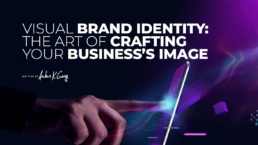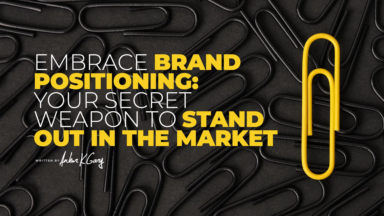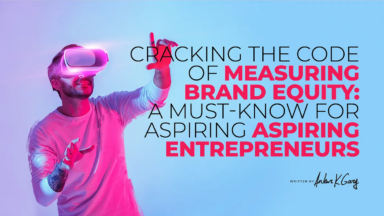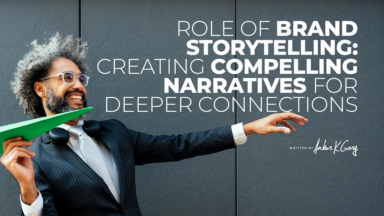Welcome to the World of Visual Branding
Ever wondered why you immediately recognize your favorite brands? Why seeing a particular shade of blue reminds you of Facebook or a swoosh makes you think of Nike? That’s the power of visual brand identity. It’s more than just a logo or a color scheme; it’s what makes your business unique and memorable in the crowded marketplace. So, let’s dive into the world of visual branding and understand how it can impact consumer perceptions.
As an aspiring entrepreneur, understanding and developing your visual brand identity is crucial. It’s your business’s first impression, your secret weapon, your silent ambassador. It’s how you communicate your brand’s personality, values, and message without saying a word. And trust me, in today’s saturated market, you really want to stand out.
So, buckle up, grab a cup of coffee, and let’s explore the fascinating world of visual brand identity together. We’ll dissect the key visual elements, understand their importance, and see how they can help shape consumer perceptions about your brand. Ready? Let’s dive in.
The Pillars of Visual Brand Identity
Logos: The Face of Your Brand
Your logo is like a mini-billboard for your brand. It’s the first thing people notice, and ideally, the last thing they forget. Think of the Apple logo or McDonald’s golden arches. They’re simple, unique, and instantly recognizable. That’s the kind of impact you want your logo to have.
When designing your logo, think about what you want it to say about your brand. Is your brand playful or serious? Modern or traditional? Luxurious or affordable? Your logo should reflect these traits. Remember, your logo is not just an image; it’s a reflection of your brand’s personality.
Don’t rush the logo design process. Take your time to brainstorm, sketch, and experiment with different ideas. Keep refining until you have a logo that you’re proud to call the face of your brand.
Colors: More Than Just Aesthetics
Did you know that colors can evoke emotions? Red can signify passion and energy, blue can convey trust and stability, while green often represents nature and tranquility. That’s why it’s so important to choose a color palette that aligns with your brand’s personality and message.
Consider Coca-Cola, for instance. Their use of red aligns perfectly with their brand’s energetic and exciting nature. Or take Tiffany & Co., whose distinctive “Tiffany Blue” has become synonymous with elegance and luxury. Your color palette can do the same for your brand.
When choosing your colors, consider how they’ll look in different contexts — on your website, your packaging, your advertisements. Make sure they’re versatile and cohesive, and most importantly, that they feel right for your brand.
Typography: The Voice of Your Brand
Typography might seem like a small detail, but it can have a big impact on how your brand is perceived. Just like colors, different fonts can evoke different emotions. A sleek, minimalist font can give off a modern, sophisticated vibe, while a hand-written style might feel more personal and friendly.
Consider the brands you admire. Notice how their choice of typography complements their logo and color palette, and adds to their overall brand identity. That’s what you want to achieve with your typography.
When choosing your fonts, keep readability in mind. You want your text to be easy to read, whether it’s on a billboard or a mobile screen. And just like with colors, consistency is key. Stick to a limited set of fonts that reflect your brand’s personality and complement each other well.
The Impact of Visual Brand Identity on Consumer Perceptions
Building Trust and Recognition
A strong visual brand identity can foster trust and recognition among your target audience. When consumers can recognize your brand at a glance, it gives them a sense of familiarity. And familiarity breeds trust. Over time, this can lead to increased loyalty and advocacy for your brand.
Consider how you feel when you see a familiar logo or color scheme. It’s almost like seeing a familiar face, isn’t it? That’s the power of a strong visual brand identity.
So, invest time and effort in crafting a visual brand identity that’s unique, memorable, and consistent. It’ll pay off in the long run.
Communicating Your Brand Personality
Your visual brand identity is a reflection of your brand personality. It’s how you communicate your brand’s values, ethos, and vibe without saying a word. When done right, it can make your brand more relatable and appealing to your target audience.
Think about how you feel when you see a brand that visually aligns with your values and lifestyle. You’re more likely to be drawn to it, right? That’s the kind of connection you want to establish with your target audience.
So, think carefully about what your brand stands for, and how you can communicate that visually. Your brand is unique, and your visual identity should reflect that.
Standing Out in the Crowd
In today’s crowded marketplace, a strong visual brand identity can be your ticket to standing out from the competition. It can make your brand instantly recognizable, and give consumers a reason to choose you over others.
Consider how some brands have made a name for themselves through their distinctive visual identities. They’re not just selling products or services; they’re selling an experience, a lifestyle. And their visual identity plays a big part in that.
So, don’t be afraid to be bold and distinctive with your visual brand identity. It might just be what sets your brand apart.
Wrapping Up
Creating a compelling visual brand identity is an exciting journey. It’s about exploring your brand’s personality, understanding your audience, and crafting a visual language that speaks to them. It’s an ongoing process, one that evolves with your brand and its audience.
Remember, your visual brand identity is more than just aesthetics. It’s a powerful tool that can shape consumer perceptions, build trust, and set your brand apart. So take your time, be thoughtful, and let your brand’s personality shine through.
So go ahead, aspiring entrepreneur, start crafting your brand’s visual story. And remember, it’s not just about looking good; it’s about resonating with your audience on a deeper level.




